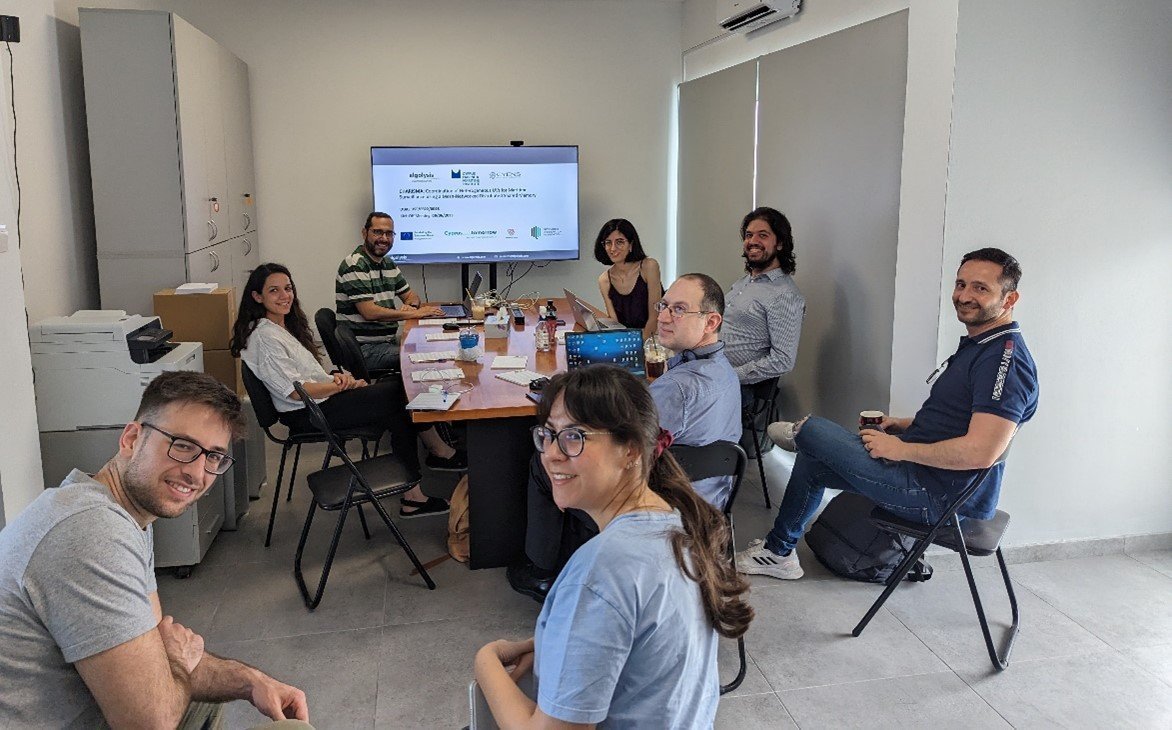The kick-off meeting of the CHARISMA project (Coordination of Heterogeneous UVs for Maritime Surveillance using a Mesh-Networked Distributed Shared Memory) took place on June 9, 2023, at Algolysis Ltd, Nicosia, Cyprus. The CHARISMA project, which is funded by the Research and Innovation Foundation, is composed of three partners, Algolysis LTD (coordinator), CMMI Cyprus Marine and Maritime Institute and CYENS Centre of Excellence.

CHARISMA, aims to devise next-generation Maritime Surveillance technology leveraging on heterogeneous autonomous robotic architectures, including unmanned aerial, sea surface and underwater vehicles. Key to this innovation is devising both hardware and software that can be attached as an add-on to existing fleets of Unmanned Vehicles (UVs). The addon will enable UVs to collectively form a mesh network for communication at the lower-level, on top of which a Distributed Shared Memory (DSM) service will be deployed. The DSM will act as the connective tissue for decentralised data exchange that will be critical for devising advanced swarming algorithms to conduct Maritime Surveillance.
These swarming behaviours will be largely based on data fusion Machine Learning models. To monitor and control these capability-augmented UV swarms, a Maritime Surveillance Digital Twin will also be implemented. By combining the expertise, intellectual property and Proof of Concepts in distributed applications (Algolysis Ltd), maritime research and robotics (CMMI), and digital twins and machine learning (CYENS), we will develop a next generation framework for Maritime Surveillance, that will ensure reliable, robust and dependable data collection, provide a comprehensive digital representation of critical situations for better assessment, and will support decision making and high-level control of UV Swarms by competent operators. The entire framework will be validated and demonstrated in a relevant environment (TRL6). Specifically, the addon device will be deployed over a set of heterogeneous UVs with advanced swarming behaviours capable of specifically monitoring maritime infrastructure (e.g. aquaculture facilities).
The kick-off meeting brought together the members of the consortium and defined the next steps for a successful collaboration.
The Project is funded by the European Union Recovery and Resilience Facility of the NextGenerationEU instrument, through the Research and Innovation Foundation.


